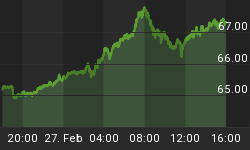Reader Peter is concerned about the future of jobs, living wages, and displaced workers in a robotic society.
Specifically, Peter asks "how do you think the evolution of robotics will play out?"
Hello Mish
At dinner with friends last evening, we discussed the idealistic thought that robots could one day serve the needs of mankind, allowing us to pursue our interests as we want, without the heavy constraint of having to work to sustain our existence.
I cannot imagine myself not wanting to build and achieve things. But it sure would be enabling if I could choose where I put my efforts based on my personal set of priorities.
While discussing this topic, I realized that as robotics enter our society, socialism would probably be friendlier as to what happens to displaced workers than would capitalism.
What happens if jobs that provide a living wage shrink faster than population growth? Is that a realistic and likely possibility?
I can only imagine that the profits reaped by robotics in a capitalistic system would have no intrinsic vested interest in what happens to these people.
There are strong forces in our capitalistic society that do not welcome the idea and/or cost of a broad social safety net, especially if it were to provide the equivalent of a living wage.
I don't see a natural path in capitalism where robots working for mankind would free us to pursue our personal interests.
How do you think the evolution of robotics will play out?
Peter
Hello Peter.
No one knows how this will play out.
Regardless, paying people to do nothing, so that people can pursue personal interests is certainly not the answer.
Such actions would encourage people to have more kids for which there are no jobs. That's clearly an unsustainable model.
If technology does not create jobs, then war is a distinct possibility.
But over the long haul, technology has always created jobs. Why is it different this time?
Unbridled Capitalism Not the Problem
Unbridled capitalism is not the problem. Some will even ask "when has it been tried?"
Yet, the advances in technology that capitalism has provided gives us more leisure time than ever before, despite increasing government interference in the free markets.
We can do more things in more places than any generation in history. We can fly or drive to the Grand Canyon to hike; we can communicate with nearly anyone in the world using Skype, for free; we live longer despite eating unhealthy.
All of these things are because of capitalism, not communism, not socialism.
Living Wages and Inflation
If you hand out a living wage for doing nothing, the amount it takes will escalate rapidly.
Central bank actions are the key problem. They are hell bent on inflation.
Technology is inherently deflationary. People benefit from falling prices, not rising prices.
Thanks to the increased productivity that stems from technology (which in turn stems from capitalism), people today live like kings compared to a few generations ago.
Not only that, but US citizens live twice as long as they did in 1850.
US Life Expectancy 1850-1911 White Males

Notes
* Massachusetts only, white and nonwhite combined (1870 extrapolated by Mish)
** Original death registration states
*** Death registration states 1920
**** Preliminary
Source: InfoPlease
Forced minimum wage hikes and central banks actions fight overwhelming technological forces.
- Hundreds of affordable housing programs did anything but make houses more affordable.
- Student loan programs made debt slaves out of students while increasing the cost of education.
- Things would cost a lot less and there would be a lot less debt were it nor for the Fed and governments.
- Virtually everything government touches increases costs.
The "living wage" would be much, much lower if government and the Fed got out of the way!
Is Mish a Socialist?
Amusingly, and in reference to the Khan Academy's free education policy, a reader actually asked: Is Mish a Socialist?
The Khan Academy is an unbridled capitalist solution, not a socialist one! Khan gets money from donations, not government, not taxes, not union coercion.
"The Khan Academy is a 501(c)(3) not-for-profit organization, now with significant backing from the Bill & Melinda Gates Foundation, The Broad Foundation, Google, the O'Sullivan Foundation, Skoll Foundation, and other philanthropic organizations."
Everything government touches drives up costs. And the Fed comes along and wants to drive up costs further. It's no wonder that "living wages" keep rising.
Related Articles
- Question to Millennials: Why Are You Not Mad as Hell Yet?
- Reader Asks Me to Prove "Inflation Benefits the Wealthy" (At the Expense of Everyone Else)
- College Tuition and the "Right to Free Services"
- Wendy's to Employ Self-Service Kiosks at 6,000 Locations
- Law Firm Hires "Ross" An Artificial Intelligence Lawyer
The problems we face are not the result of free market capitalism, nor the result of robots.
Rather the problems we face are the direct result of Fed sponsored inflation, corporate and military fascism, government interference in the free markets, and socialist-sponsored wealth redistribution schemes.
If we let things be, "unbridled" capitalism would take care of things, if not quite nicely, then certainly better than any socialistic or government-sponsored solution.















